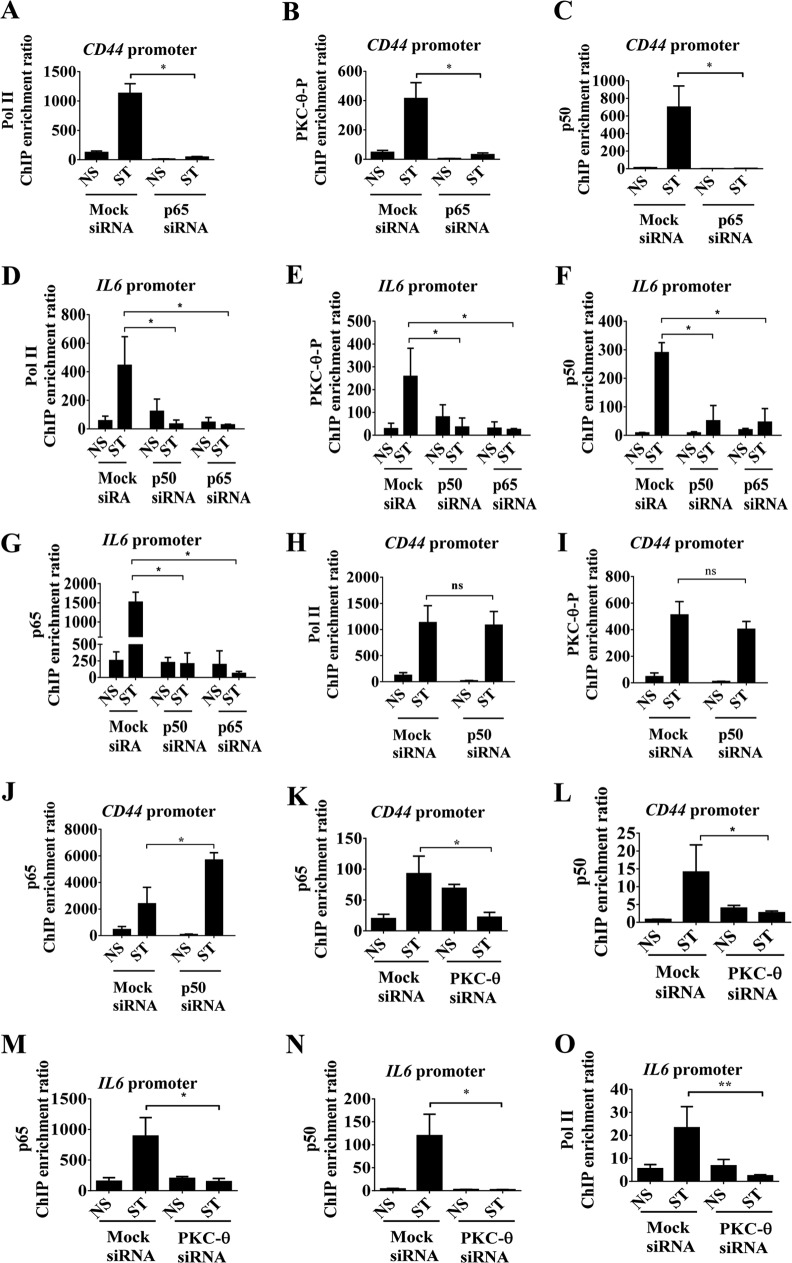FIG 7.
Differential effects of p50 and p65 in the anchoring of chromatinized PKC-θ on inducible genes. (A to C) ChIP on mock and p65 siRNA-pretreated MCF-IM cells, nonstimulated (NS) and PMA stimulated for 60 h (ST) across the CD44 promoter using antibodies against Pol II (A), PKC-θ-P (B), and p50 (C). Results are from 3 independent experiments. (D to G) ChIP on mock and p65 siRNA-pretreated MCF-IM cells, nonstimulated (NS) and PMA stimulated for 60 h (ST) across the IL-6 promoter using antibodies against Pol II (D), PKC-theta-P (E), p50 (F), and p65 (G). (H to J) ChIP on either mock or p50 siRNA-treated MCF-IM cells, nonstimulated (NS) and PMA stimulated for 60 h (ST) across the CD44 promoter using antibodies against Pol II (H), PKC-θ-P (I), and p65 (J). (K and L) ChIP on either mock or PKC-θ siRNA-treated MCF-IM, nonstimulated (NS) and PMA stimulated for 60 h (ST) across the CD44 promoter using antibodies against p65 (K) and p50 (L). (M to O) ChIP similar to those described for panels K and L, but across the IL-6 promoter. All results represent the means ± standard errors from three independent experiments (n = 3). **, P < 0.01; *, P < 0.05; ns, not significant.

